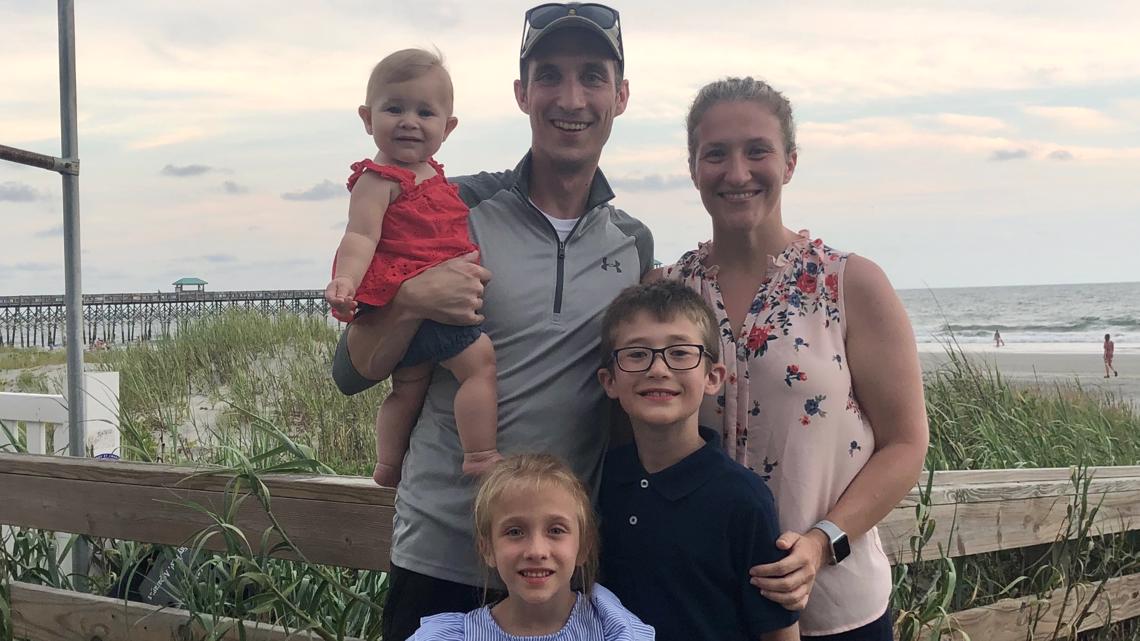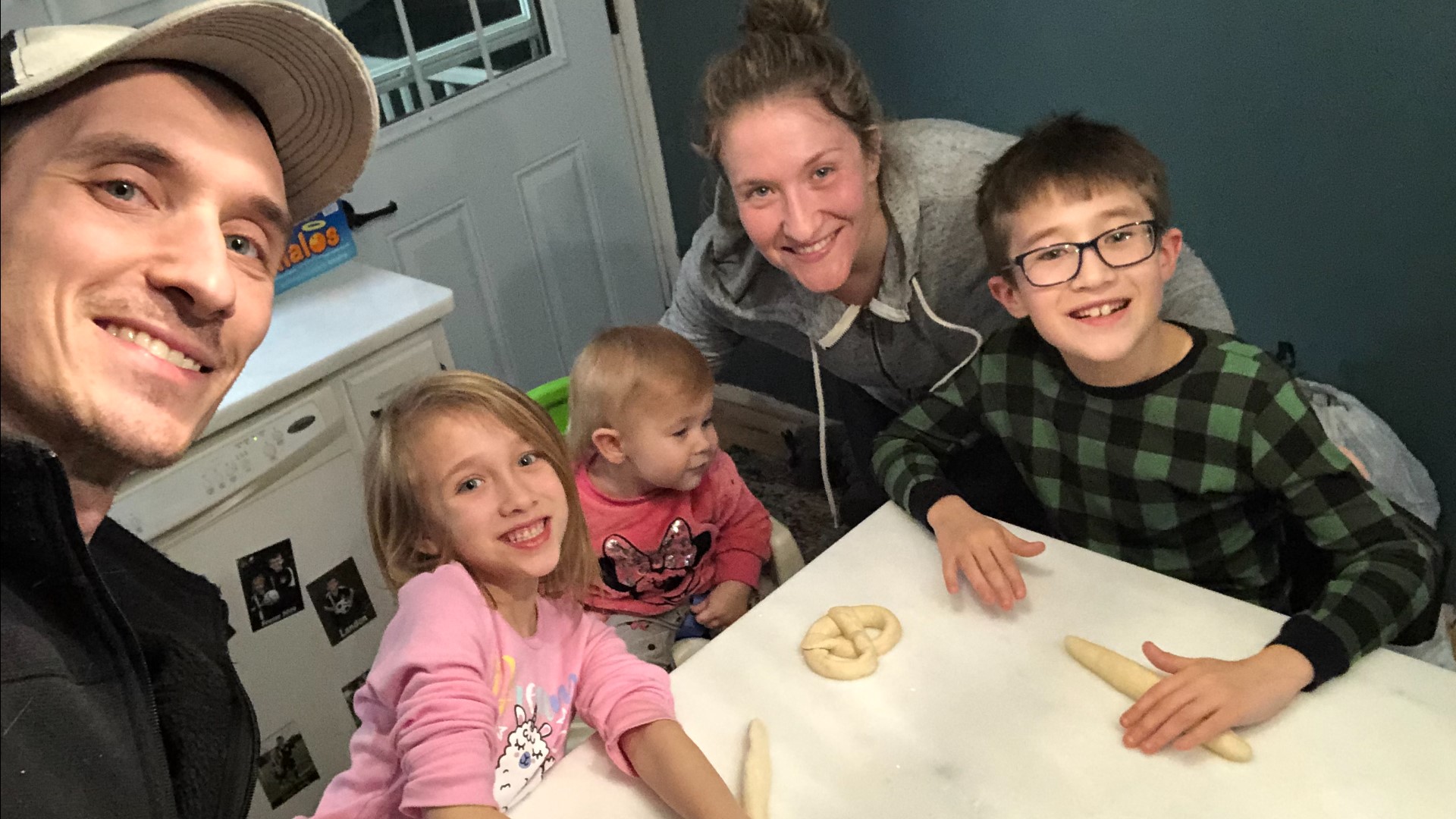TOLEDO, Ohio — The COVID-19 pandemic has presented difficult challenges for adults and parents, so imagine just how hard it can be on a child or teenager.
A local family had two of their children face pandemic-related mental health struggles and they were forced take action.
The Parsell kids from Upper Sandusky were are all smiles when we met them recently at a playground in Findlay.
9 year-old Landon and 6 year-old Eleanor were having a great time on the slides and swings.
It was a nice break from the stresses of the COVID-19 pandemic.
But the pandemic brought a number of challenges for the kids and their dad, Scott, and mom, Bethany.
"I went back to work, still learning how to adjust to two kids in school and then a new baby. And then two weeks later, the pandemic hit," Bethany said.
Bethany is a nurse practitioner who struggled with terrible post-partum depression and anxiety.
And just like it spread disease through the area, the pandemic stress spread through the Parsells.
None of them got physically sick, but it damaged their mental health, especially Eleanor's.
"Everything was a big deal, having big meltdowns and crying and she's 6 and can't articulate her feelings," Bethany said.
Tiffany Pottkotter, a psychiatric nurse practitioner for ProMedica, says most anxiety in kids during this pandemic is school-related, because they haven't been able to see friends or they're struggling with remote schooling.
Pottkotter says the pandemic has brought on anxiety and even depression in kids as young as 4 years old.
Add to that, research from Stony Brook University that says as of February, 37,000 kids under 17 lost a parent to COVID-19.
"Losing a parent as a child is traumatic," Pottkotter said. "Losing a parent as a child going through a pandemic, I mean you already don't have a sense of normalcy, is even more traumatic."
The oldest child of the Parsell family, Landon, tended to stress about the family getting sick.
He would get worried when his mom would want to go to the grocery store while a pandemic was going on.
Pottkotter says parents need to be more in tune with how their kids are feeling how to help fix what's wrong.


That's exactly what the Parsell family did for Eleanor when they brought in a counselor.
"I didn't want to let my daughter down. You know, because she deserves the best that I can give," Bethany said.
Eleanor is now doing much better.
"She can even say, if she's kind of a mess inside, she can say 'Mommy I don't feel right. I don't know what I feel right now but I need a minute.'
"I would plead to the parents that haven't gotten help for themselves or for their kids, to just come in because those are the kids that I worry about, falling through the cracks," Pottkotter said.
The baby, Ruby, has had the fewest problems.
"The pandemic really taught us to slow down and focus on our home unit. So she has really benefited. I don't see the issues with her," Bethany explained.
If any of your kids or teens are struggling, Pottkotter says you can start with their pediatrician for a prescription for medication or a referral to a mental health provider.
"And you need to be able to identify who's in your tribe who can help. And be honest and raw. It's not a sign of weakness asking for help," Bethany said.

